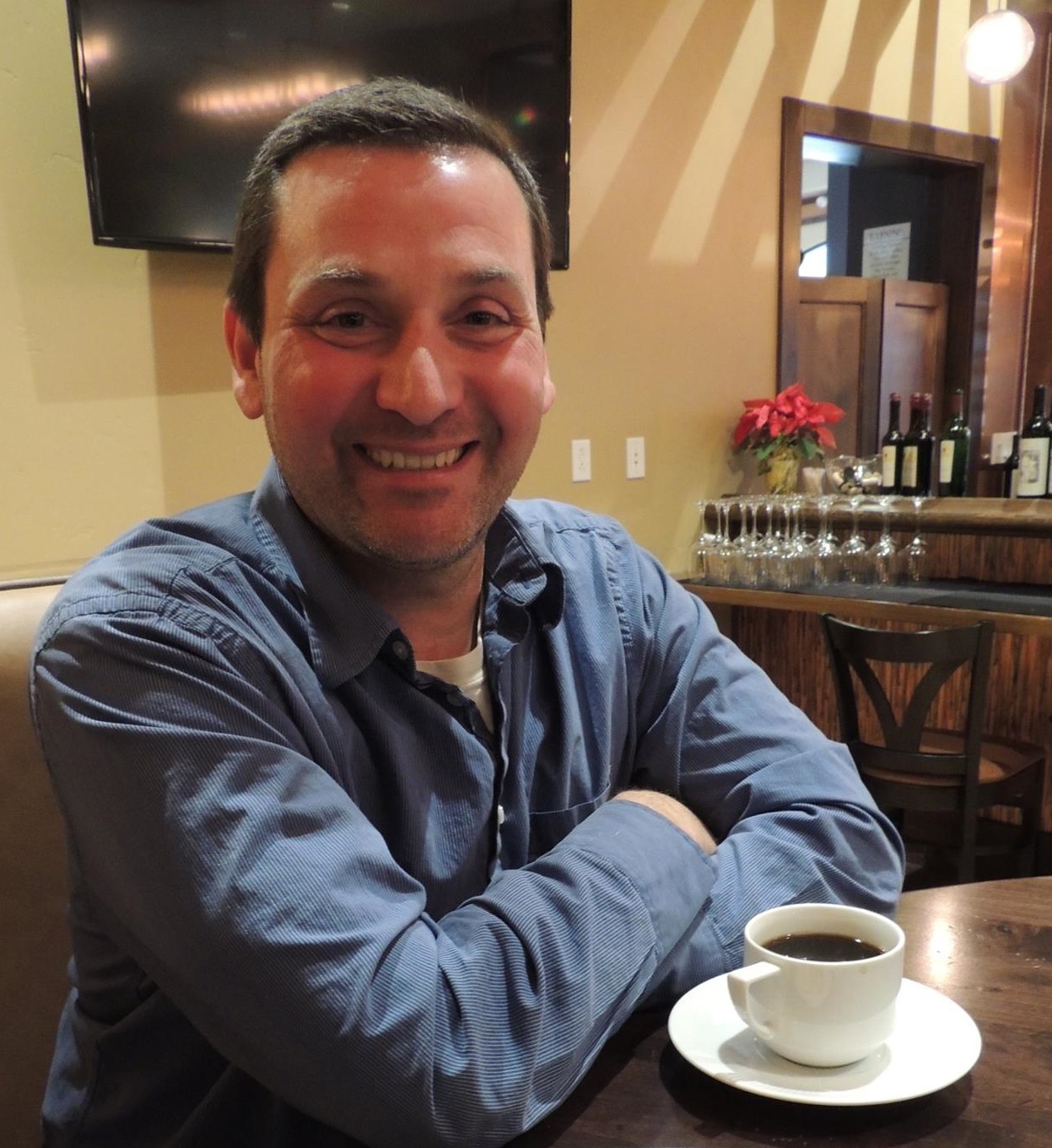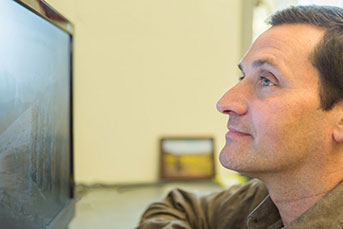Chris Kello is a Professor of Cognitive Science at UC Merced and heads the Cognitive Mechanics Lab. The lab conducts behavioral experiments and analyses for the purpose of building computational and mathematical models to understand the foundations of cognition and intelligence. These foundations can be found throughout nature but the lab focuses on speech, communication, coordination, and foraging. We approach cognition and intelligence from biological, behavioral, social, and evolutionary levels of analysis, and our theories are founded in neural networks, agent-based modeling, and multiscale dynamics. Current research topics and selected publications are listed below, and here is Dr. Kello's Google Scholar page.
Dr. Kello has taught undergraduate courses in Mind, Brain, and Computation and Cognitive Science Methods at UC Merced, and graduate courses in Cognitive Science Foundations and Intelligent Adaptive Systems. He has served as chair of the Cognitive and Information Sciences graduate program, Associate Dean and Dean of Graduate Education, and Program Director at the National Science Foundation. His research has also been funded by NSF, as well as the National Institute of Mental Health, Defense Advanced Research Projects Agency, the Keck Foundation, Google, IBM, and Accenture. His Ph.D. students have gone on to postdoctoral fellowships, tenure-track professorships, and industry research and data science careers at companies like Roblox, Intel, Meta, Ericsson, and Accenture.
- Sequence Learning. Sequence learning is central to natural and artificial intelligence, from predicting upcoming observations to generating sequences based on experience. Dr. Kello has been working with UCM students and researchers at IBM and Accenture on new approaches to models of sequential learning and processing that take energetic and computational effiency as informative constraints.
- Kello, C. T. (2013). Critical branching neural networks. Psychological Review.
- Ebrahimpour, M., Shea, T., Danielescu, A., Noelle, D., & Kello, C. (2020). End-to-end auditory object recognition via inception nucleus. IEEE International Conference on Acoustics, Speech and Signal Processing (ICASSP).
- Sibley, D. E., Kello, C. T., Plaut, D. C., & Elman, J. L. (2008). Large‐scale modeling of wordform learning and representation. Cognitive Science.
- Hierarchical Temporal Structure. Language, music, and many complex behaviors have smaller units nested within larger units (e.g. syllables in words) across several levels of temporal structure. Dr. Kello and colleagues have developed methods for quantifying this hierarchical structure in sound and theories to elucidate its meaning and origins.
- Kello, C. T., Dalla Bella, S., Médé, B., & Balasubramaniam, R. (2017). Hierarchical temporal structure in music, speech and animal vocalizations: jazz is like a conversation, humpbacks sing like hermit thrushes. Journal of The Royal Society: Interface.
- Falk, S., & Kello, C. T. (2017). Hierarchical organization in the temporal structure of infant-direct speech and song. Cognition.
- Kello, C. T., Brown, G. D., Ferrer-i-Cancho, R., Holden, J. G., Linkenkaer-Hansen, K., Rhodes, T., & Van Orden, G. C. (2010). Scaling laws in cognitive sciences. Trends in Cognitive Sciences.
- Complexity Matching. People coordinate the timing of their behaviors when interacting together. Lab members have developed methods for measuring alignment of hierarchical temporal structure based on theories of complexity matching, and they have shown how such alignment is important to conversation and cooperation.
- Abney, D. H., Paxton, A., Dale, R., & Kello, C. T. (2021). Cooperation in sound and motion: Complexity matching in collaborative interaction. Journal of Experimental Psychology: General.
- Schneider, S., Ramirez-Aristizabal, A. G., Gavilan, C., & Kello, C. T. (2020). Complexity matching and lexical matching in monolingual and bilingual conversations. Bilingualism: Language and Cognition.
- Alviar, C., Dale, R., Dewitt, A., & Kello, C. (2020). Multimodal coordination of sound and movement in music and speech. Discourse Processes.
- Human Foraging. Foraging for food and other resources is foundational to life and intelligence. Dr. Kello has worked with students and postdocs to understand how foraging is at the root of human intelligence as expressed in memory, language, and coordination.
- Kerster, B. E., Rhodes, T., & Kello, C. T. (2016). Spatial memory in foraging games. Cognition.
- Garg, K., & Kello, C. T. (2021). Efficient Lévy walks in virtual human foraging. Scientific Reports.
- Schloesser, D. S., Hollenbeck, D., & Kello, C. T. (2021). Individual and collective foraging in autonomous search agents with human intervention. Scientific Reports.





